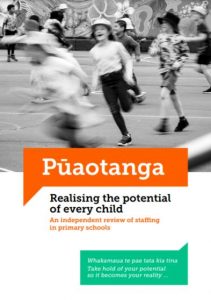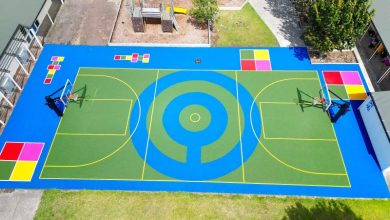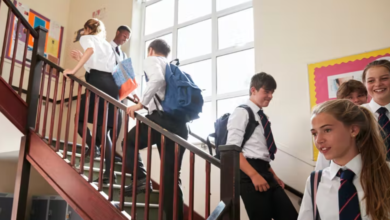
A landmark report recommends bold changes to staffing in New Zealand primary schools to address equity issues preventing our children reaching their potential.
The review of staffing in primary schools was brought about by New Zealand Educational Institute Te Riu Roa, which invited an independent panel of education experts, chaired by Steve Maharey, to conduct the Pūaotanga review. The report released on June 10 says that current staffing is not fit for purpose, and that children are missing out due to high student-teacher ratios, teachers’ lack of time to adequately prepare for teaching, and inadequate specialist staffing resources.
NZEI Te Riu Roa President | Te Manukura Liam Rutherford believes the sector will welcome the report:
“In their submissions to the panel, educators delivered a consistent message – that they are stretched to the limit, and that significant change is needed to address their needs and our children’s.
“Educators are in this line of work because they love it. They’re passionate about seeing tamariki succeed and do well. But for years now, they’ve said their workloads have been increasing and that it’s getting harder to meet their students’ increasingly diverse needs.
“The report shows clearly that our current primary staffing model is inadequate: that right now, with the resources available to them, it’s just not possible for our country’s educators to give each and every child the support they need to achieve their potential.
“While this is awful to hear, I hope that the people who work in our schools find it validating.”
Key recommendations include increasing classroom release time to give teachers and teacher aides more time for planning, lowering student to teacher ratios so teachers can spend more time with each student, providing additional, centrally funded learning support resource to ensure all students’ needs are met, and providing additional targeted resource to strengthen Māori and Pasifika education.
“We welcome the review’s recommendations to address these issues head on. Much of what the report suggests reflects what educators have already been asking for, but with the added benefit of data-driven analysis, and the added weight that comes from an independent perspective.
“Teachers, learning support, support staff and principals now have a template for a path forward from here, with clear steps to take now, and in the short and medium term by 2030. As our members head into pre-negotiation union meetings for their collective agreements later this month, this report will provide them with crucial guidance on where to focus their energy.”

Highlights from the Pūaotanga report:
Teaching recommendations
- Progressively increase classroom release time to one day per week for full-time teachers.
- Progressively lower student to teacher ratios to a level where they align with the lower secondary school years, with further lowering of ratios in Māori medium settings.
- Improve staffing at small schools and ensure a minimum of two curriculum / management staff onsite at all times.
- Ensure schools with high levels of need receive additional curriculum staffing.
- Establish a comprehensive advisory service based in regional offices and staffed with a mix of permanent ESA employees, expert teachers and principals seconded from schools and independent local contractors.
Learning support recommendations
- Work toward an achievable goal of a teacher aide in every classroom.
- Ensure every school has a centrally funded staffing entitlement for a SENCO.
- Make counselling a separate line in the primary staffing entitlement, as it is for secondary schools.
- Merge the RTLB service and Ministry of Education Learning Support services and relocate them to the planned Education Service Agency.
Additional recommendations:
- Introduce targeted financial support, additional to the current provision, for people on low incomes who are training to become teachers in Māori medium settings.
- Significantly improve the Māori Immersion Teaching Allowance.
- Introduce a Pacific Immersion Teaching Allowance (PITA).
- Conduct a comprehensive review of initial teacher education programmes, with the purpose of improving their quality and consistency.
- Ensure primary and secondary teachers in middle schools, area schools and junior high schools receive equivalent pay, allowances and release time.
The reviewers said that “Of particular concern [was] the need to ensure that Māori are able to be Māori as they progress through their educational journey; that the Pacific learner can learn as a person of their culture; that children with disabilities have no barriers to inclusion; and that, no matter where a child lives, they can access the best possible educational experience.”
About Pūaotanga
NZEI Te Riu Roa commissioned Pūaotanga at the start of this year. The Review has been conducted by an independent panel of education experts: Steve Maharey, Whetū Cormick, Dr Cathy Wylie, and Peter Verstappen.
The final report captures over 2,650 written submissions and the oral evidence from six hui across Aotearoa. The Panel’s recommendations to Government are based on the experience and voices of educators, parents, academics, and sector groups and set out a pathway to better primary education for all our tamariki by 2030.









